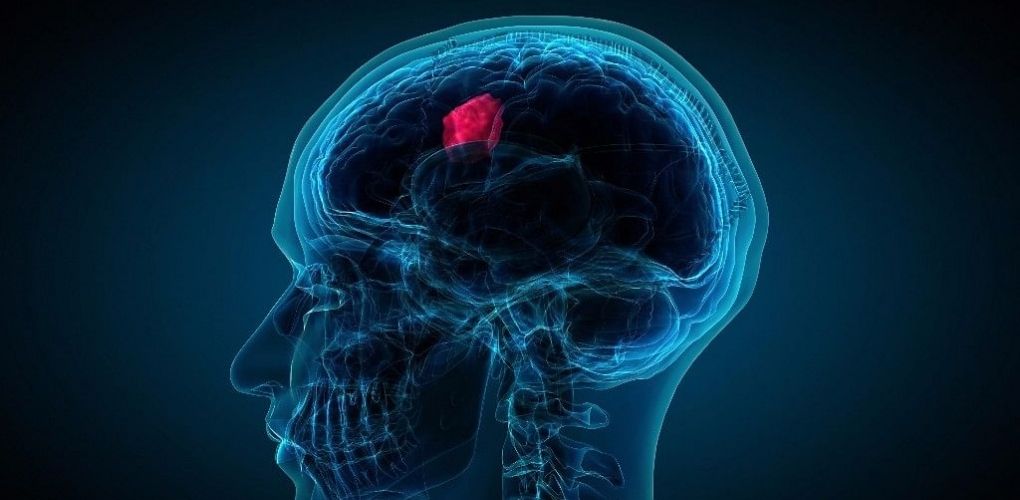7 Warning Sign and Symptoms of Brain Tumor
Around 40,000 to 50,000 people in India are diagnosed with a brain tumor every year. Brain tumours exist in different shapes and they all present with varying symptoms. Where a tumor form is the biggest factor in determining the symptoms. Certain genetic disorders can cause brain tumors. People should remember that the vast majority of people will not be diagnosed with a brain tumor. The major symptoms to look out for are personality changes, weakness down one side of the body or the other, and seizures.
Table of Contents
What is Brain Tumor?
A brain Tumor occurs when there is the development of the mass of abnormal cells within the brain. Brain tumors are not usually cancerous, as is commonly believed.
Despite the fact that they can be quite dangerous and even life-threatening. People are worried about brain tumors because there is a big fear factor. It’s very, very threatening to think that there’s something wrong with the brain and people fear losing control. The first thing to say is that brain tumor are extremely rare. They present as benign or malignant tumours and the important thing to be aware of is that benign and malignant symptoms of Brain tumour will be the same.
Symptoms of Brain Tumor
Taken together, the fact that every cell in your brain has the potential to create a tumor and the fact that your brain regulates or interprets information from every aspect of your body, the list of possible tumor symptoms covers “almost everything imaginable.” Despite this, some signs and symptoms of brain tumor are more common than others in different people.
Here are 7 warning signs and symptoms of brain tumor:
-
Seizures
Whatever the type of tumor, seizures are frequently one of the first signals that something is seriously wrong. When the [brain’s] neurons are irritated by the tumor, they fire wildly, resulting in aberrant movements. Seizures, like cancers, can manifest themselves in a variety of ways. You could have convulsions that affect your entire body, or trembling or flexing that affects only one limb or one region of your face.
-
Clumsiness
The feeling of clumsiness in your arms, legs or hands, such as fumbling over keys, missing steps, or losing your balance, could be an indication of a medical emergency. Clumsiness can manifest itself in or around the brain in a variety of ways, including difficulties speaking, swallowing, and managing your facial expressions.
-
Numbness
Numbness Losing feeling in a region of your body or face is something to be aware of, just as clumsiness is. You may notice a lack of feeling or imprecise movements if a brain tumor develops at the place where your brain joins to your spinal cord.
-
Changes in Memory or Thinking
While tumors might produce significant changes in a person’s conduct or personality, the kinds of dramatic changes you hear about or witness in movies are unusual. People with tumors are more likely to have trouble remembering things, be confused, or have less severe thinking difficulties.
-
Change in Vision
Tumors have been reported to result in blurred vision, double vision, and even total vision loss. Additionally, you may notice floating spots or shapes or what is referred to as an “aura.” You may experience weak limbs or blurry vision if you have a tumor near the portion of your brain that controls your arms or vision.
-
Recurring Headache
There is sort of warning signs That prompt you to go to a neurologist or a neurosurgeon as soon as possible. A thought of headache is not the calm symptom of a brain tumor. However, if a headache is present and especially if it is progressive and it is more in Mourning time and if it is associated with vomiting then it indicates there is increasing pressure in the brain which can be due to a brain tumor. In that case, you should get yourself evaluated by a neurosurgeon or a neurologist as at the earliest.
-
Communication Issues
Speech and vision are processed by the same part of your brain, which is called the prefrontal cortex. However, if a tumor interferes with their ability to communicate, it can seriously impair their ability to communicate. This is one of the most common symptoms of a brain tumor and can result in language impairment, speech difficulties, and memory loss, which can result in loss of words and poor recall, among other things.
These are the commonest signs that we see. Less common are headaches, so people don’t need to associate a headache always with a brain tumor. Some of the slightly less common signs that people show with a brain tumor might be unsteadiness or lack of coordination, drowsiness, or – less commonly – sickness.
Diagnosis of Brain Tumor
Other possible symptoms that people might see are flickering of the eyes, loss of part of their vision, problems with their swallowing or speech. Another sign that people might present with is problems understanding words, problems with reading, writing or simple calculations. They may experience the symptoms for other reasons but they are not to panic. If the symptoms persist for a week they should contact their doctor for them to be investigated further.
The brain tumor is diagnosed by
- MRI & CT scan
- Brain tissue biopsy
In the treatment of Brain tumor, Radiation therapy, chemotherapy, surgery is used.
- Radiation therapy: uses precise high energy rays to selectively destroy cancer cells
- Chemotherapy: Use of medicines to kill cancer cells.
- Surgery: Tumors can be surgically narrowed by
Further treatment depends on the condition of a patient. Please consult a Brain doctor or a Neurologist if you have a severe headache or any symptoms of a Brain tumor.
Other useful links: Brain Tumor Surgery | Early Symptoms of Cancer | Ways to Improve Mental Health




